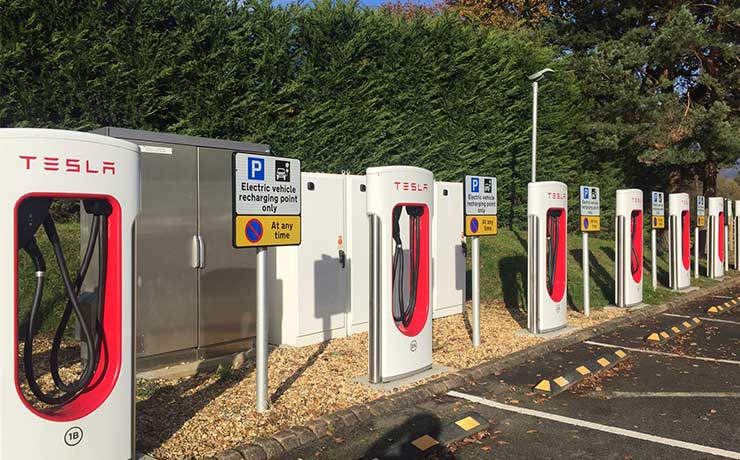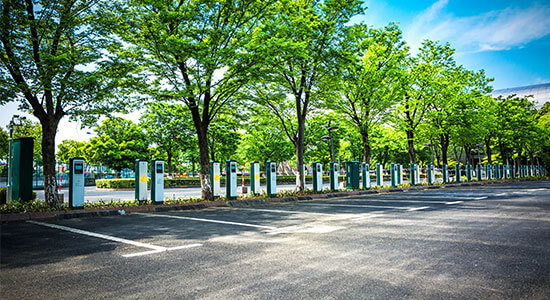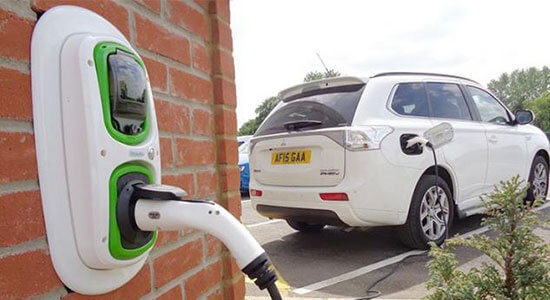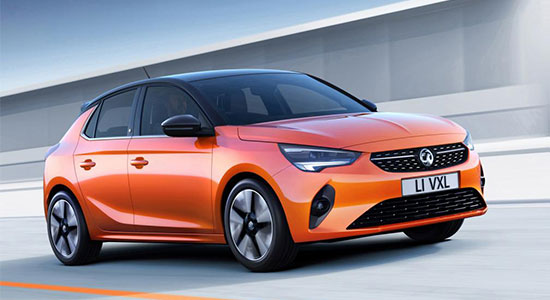Call us today for a chat 01428 550 700
Call us today for a chat 01428 550 700
One of the key differences between a petrol or diesel car and an electric vehicle (EV) is fuelling the car – no more unwelcome visits to the petrol station.
The majority of electric vehicle drivers with off street parking charge at home overnight and once you get used to the idea it is just like plugging in your mobile phone or laptop. This is the simplest and most convenient method. The batteries in EV’s are designed to hold their charge and depending on your car and mileage may not need charging every night.
Most EV’s can be charged at home using a standard three-pin domestic plug socket and your new EV may be supplied with a standard charging cable allowing you to charge anywhere you can find a mains socket. However, it will be slow and it is far better to install a dedicated EV charging wall box (which should be fitted by a qualified electrician). A wall box is safer and quicker than using a domestic plug socket as it communicates directly with the car and reduces charging time - typically by 30%-60% depending on the vehicle.
The cost of a home charging point will start at around £750, and as part of the Electric Vehicle Home Charge Scheme there are Government grants towards the cost of your Smart home charging point – you can find out more here. Basically you can claim up to 75% of the costs of having a Smart charging point installed by a registered supplier up to a value of £350.
Charging at home is remarkably cost effective. Electricity is cheap compared to petrol or diesel. It's estimated that the average cost of fuel in an EV is about three to four pence per mile, compared to approximately 12 pence per mile in a traditional petrol or diesel vehicle.

The number and location of public charging points is growing steadily and no longer limited to motorway service stations.
Best suited for use mid-journey, the roadside DC fast chargers offer rapid charging and are capable of providing up to 80% of charge in as little as half an hour.

Running an electric car is a lot about a shift in lifestyle. Fitting in a quick top up charge when out shopping, at the Leisure Centre or Cinema becomes second nature. Enterprising businesses are fitting charging points in car parks of restaurants and hotels, for example, to encourage customers to pop in for lunch and top up at the same time. The added bonus is that some are also FREE.
Most big cities are exploring ways of expanding the charging network and we are starting to see plug-in points everywhere from car parks to street lamp posts and it is becoming easier than ever to locate a charging point near you. Unfortunately the electric car industry hasn’t yet standardised the type of connector used and not all public charging points will be compatible with some electric cars – frustrating for owners, but as with any emerging technology there is the competitive battle going on - we expect this issue to be ironed out very soon.
Not everyone has access to dedicated off street parking and are unable to charge at home. However the growing number of public charging points means that more and more residential streets are becoming part of the public charging network making it possible for those without a driveway or garage to charge their EV at home.
The government also offers a grant to local authorities to encourage the installation of residential on-street charging points which covers 75% of the cost. Simply check with your local authority whether they are participating in this scheme or check here for the latest guidance.
Sadly no.
Not all 100% electric and plug in hybrid cars and vans have the same charging cables or sockets – yet!

There are three main types. The cable that comes with your car will fit your car's socket and at the other end all standard cables have a Type Two plug which connects with the Universal Type Two plug sockets found on the latest charging points. So plugging in to charge should be easy.
Rapid chargers don’t have sockets they have cables built in, so you simply use the one that fits your car to connect up. Some cars also come with charging cables that connect to a standard 13-amp socket, if you’ve got all day! You have to have the right connector for your car and these vary so if you change your car in the future the connector may not fit. Home charge units can be specified to suit you - of course.
Electric cars may be able to earn you money. For the UK to fully embrace renewables, we need to explore new ways of storing energy to cope with fluctuations in electricity generation and demand.
We have to organize and think through the bigger picture, otherwise there is going to be an issue with supply at peak times when everybody comes home from work, plugs their electric cars in, just at the time when we're all cooking supper, lights are going on, the heating is on and there's too much draw on the grid.
Enterprising energy suppliers are testing a “Vehicle to grid scheme.” When cars are left parked up or plugged in, there's a lot of energy just sitting there doing nothing. With vehicle to grid, the idea is that customers will be able to charge their cars overnight when it's cheaper, and then earn money by selling excess energy back to the grid at peak times.

This game changing tech is about far more than potentially making EV owners money, it will play an important part in helping to re-balance our energy needs around the country by changing how we produce, supply and use energy.
For more detailed information about specific charging networks, cables etc. please visit the Knowledge Centre
